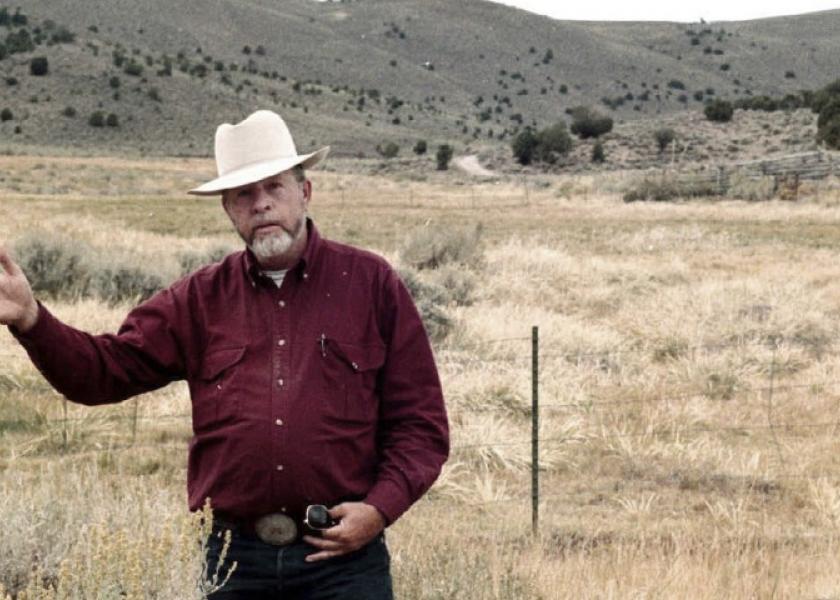U.S. Judge: Nevada Rancher's Son Must Pay $587K, Remove Cattle

A lawyer for a Nevada rancher whose father fought the government for decades over grazing and property rights said Thursday he’ll appeal a federal judge’s order to pay $587,000 and remove his livestock from federal lands by the end of the month.
Mark Pollot, attorney for Wayne N. Hage, said in a brief email that they disagree with the judge’s decision and that he was working on a notice of appeal.
Hage is the son of cattleman and longtime Sagebrush Rebellion figure Wayne Hage, who died in 2006.
The father’s fight began in 1991, more than a decade after the movement to wrest control of federal land got its start in the late 1970s and was labeled the Sagebrush Rebellion. But the elder Hage became iconic among ranchers and cattlemen who chafe at grazing and use restrictions on vast expanses of land under government control in states in the West.
Federal agencies control some 85 percent of land in Nevada, 66 percent in Utah, 62 percent in both Idaho and Alaska, and 53 percent in Oregon, according to the Congressional Research Service.
The movement then has echoes today in states like in Utah, where lawmakers have for years tried to seize control of land from the federal government. One law passed by the Legislature in 2012 even set a 2015 land transfer deadline that came and went.
In Congress, a federal-to-state land transfer bill by Nevada Republican U.S. Rep. Mark Amodei got a subcommittee hearing in November, along with another measure called the Federal Land Freedom Act of 2015.
Opponents argue that states don’t have the money to manage and protect vast expanses of rangeland or fight wildfires, and that they would allow oil and gas drilling in environmentally sensitive places.
U.S. park, forest, military and other agencies also control significant amounts of land in Arizona, California, Colorado, New Mexico, Montana, Washington state and Wyoming.
Chief U.S. District Judge Gloria Navarro in Las Vegas on Monday ruled that federal grazing permits held by Wayne Hage and his wife until the mid-1990s didn’t transfer to their estate or to their son.
The judge gave Wayne N. Hage 30 days to pay grazing fees and penalties racked up from November 2004 to June 2011, and 15 additional days to provide proof that he had complied.
The judge’s order also banned the Hage family from grazing livestock on any public land administered by the U.S. Forest Service or Bureau of Land Management.
The battle over some 11,000 square miles of property in and around Nye County, northwest of Las Vegas, preceded the fight involving federal agencies and rancher Cliven Bundy and an armed standoff in April 2014 near Bunkerville, 90 miles northeast of Las Vegas.
Five Bundy family members and 12 accused co-defendants are now facing trial before Navarro in Las Vegas on conspiracy, weapon, assault on a federal officer and other charges relating to the standoff. Two other defendants have pleaded guilty to federal charges.
Hage told the Las Vegas Review-Journal he doesn’t have livestock on the range in question. He declined to say if he could pay the judgment.
He cast the court ruling as a “bellweather” step in government efforts to extinguish private property rights on public land.
The Hage case has a long and complicated history. Navarro’s ruling follows a 2013 decision by U.S. District Judge Robert Clive Jones in Nevada that was overturned on appeal by the 9th U.S. Circuit Court of Appeals in San Francisco.







